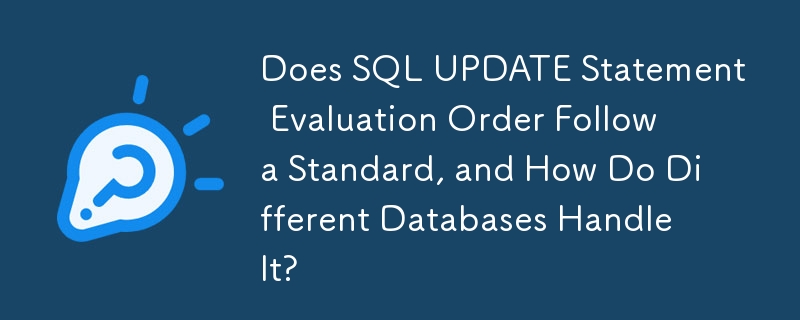

SQL UPDATE Evaluation Order
In an SQL UPDATE statement, the order of evaluation determines whether subsequent expressions rely on modified values. This article explores the evaluation order in the query:
UPDATE tbl SET q = q + 1, p = q;
MySQL Evaluation Order
In MySQL, the evaluation order is "left to right." This means that the expression "q 1" is evaluated before "q" in the assignment to "p." Therefore, tbl.p will be set to the value of q before it is incremented.
SQL Standard
According to the SQL92 specifications, "[The value expressions] are effectively evaluated for each row of T before updating any row of T." However, this statement is not explicitly clear.
Implementations and Behavior
Despite the standard, implementations vary in their evaluation order. Tests have shown that the following databases set tbl.p to q:
On the other hand, the following databases set tbl.p to q 1:
MySQL Bug and Documentation Update
MySQL had previously defied the majority behavior, but a bug was raised and the documentation was updated to explicitly reflect the "left to right" evaluation order. This behavior is marked as a difference from Standard SQL.
The above is the detailed content of Does SQL UPDATE Statement Evaluation Order Follow a Standard, and How Do Different Databases Handle It?. For more information, please follow other related articles on the PHP Chinese website!




